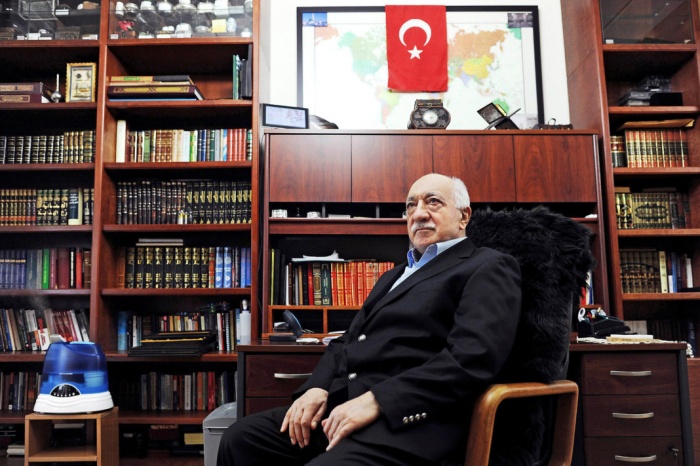Fethullah Gülen, a Turkish cleric living in exile who is seen as an arch-nemesis by Turkish President Recep Tayyip Erdoğan, has condemned recent attacks in France prompted by the display of depictions of the Prophet Muhammad.
“I learned recently about the cruel murder of Samuel Paty in a Paris neighborhood and was deeply saddened. Unfortunately, I was shocked with the news that in another French city, three other people were brutally stabbed to death during prayer at their place of worship. I would like to state openly that I was even more saddened that those who committed these crimes used Islamic arguments and shouted religious slogans,” the cleric’s statement, published by the Alliance for Shared Values (AfSV), a non-profit organization inspired by his teachings, said on Friday.
An 18-year-old Chechen migrant beheaded French teacher Samuel Paty in Paris on October 16 for showing caricatures of the Prophet Muhammad in a class about freedom of speech, and the ensuing uproar saw President Emmanuel Macron ramping up rhetoric against Islamism and his defense of the right to mock religion. Macron’s stance led to calls for a boycott of French products in the Muslim world, with Erdoğan’s remarks against the French leader resulting in Paris recalling its envoy from Ankara.
On Thursday a knife-wielding attacker killed three people near a church in the French city of Nice. French authorities described the act as “an Islamist terrorist attack.”
“Every human was created as worthy, and every human life is sacred no matter their beliefs. Taking human life so lightly cannot be reconciled with neither humanity nor Islam!” the cleric’s statement said.
“… committing these kinds of atrocities is a clear sign that the perpetrators have not benefited from the Prophet’s message that embraces all of humanity with compassion. At the same time, such actions are the greatest disrespect to his legacy,” Gülen said.
Turkey outlawed the Gülen movement, a group that is said to seek a broader dialogue between cultures and civilizations inspired by the cleric’s teachings, after a coup attempt in July 2016, which Ankara claims was carried out by Gülen’s followers at his behest.
Gülen denies any involvement in the abortive putsch, which killed 251 people as rogue soldiers opened fire on civilians and a mob lynched conscripts caught up in the incident.
“It is unlikely Gülen really had the abilities and capacities to take such steps. There is no evidence that the army, [which] considers itself as the guardian of Turkey as a secular state, and the Gülenists were willing to co-operate with each other to oust Erdoğan. The Gülen movement is very disconnected and somewhat distant from the secular opposition and Turkish army,” a report on the putsch attempt prepared by the EU Intelligence Analysis Centre (IntCen) said.
Political fallout from the coup resulted in a crackdown on the movement, with tens of thousand ending up in jail and more than 100,000 losing their jobs through successive emergency decrees.
Turkey’s Directorate of Religious Affairs, which has become more and more involved in public affairs on Erdoğan’s watch according to critics, branded the Gülen movement a heretical group.
Gülen’s calls for dialogue, starting from the 1990s, did not sit well with some religious groups in Turkey, most notably the Islamist Milli Görüş (National Vision), a group Erdoğan once belonged to before he founded the ruling Justice and Development Party (AKP).
Gülen’s statement concluded with a reminder of the need for “respect and compassion” as he offered condolences to the loved ones of the victims.

